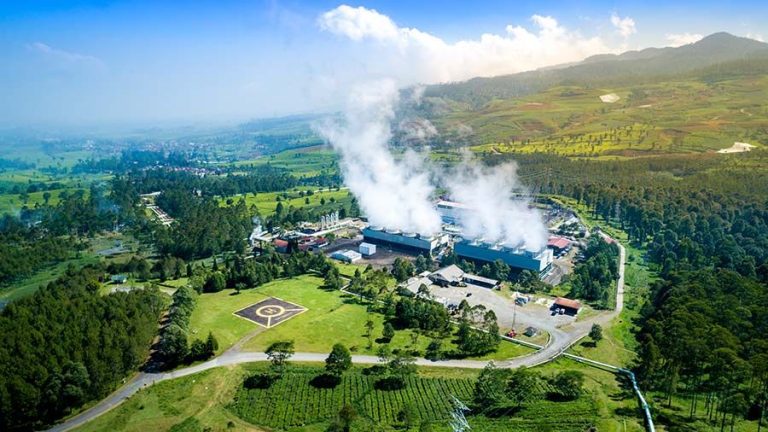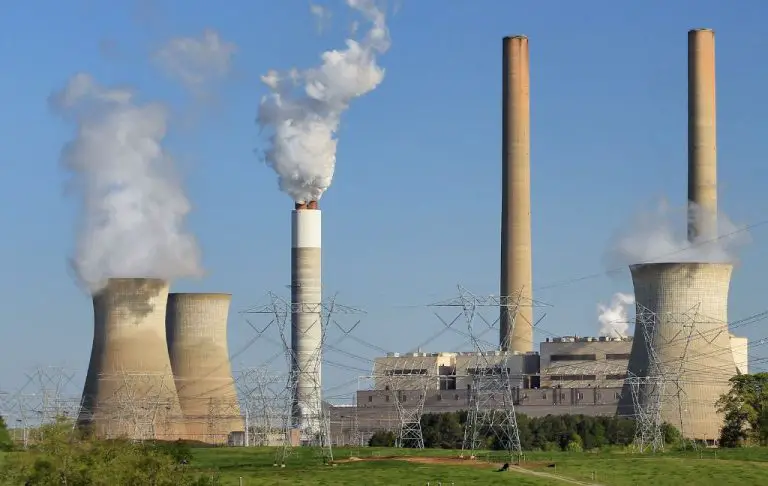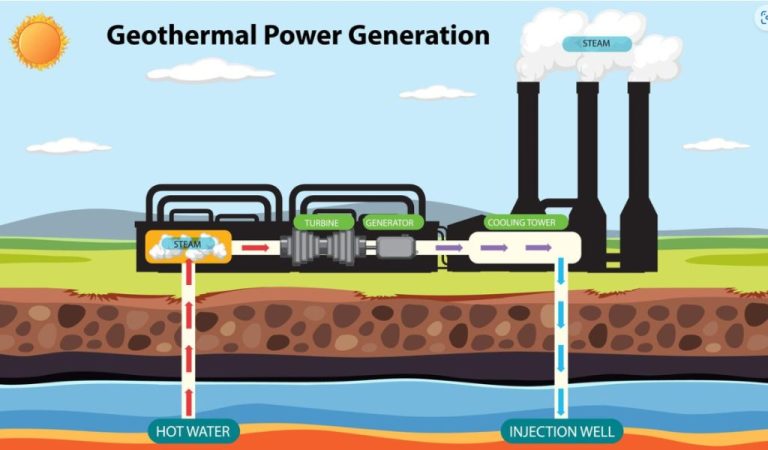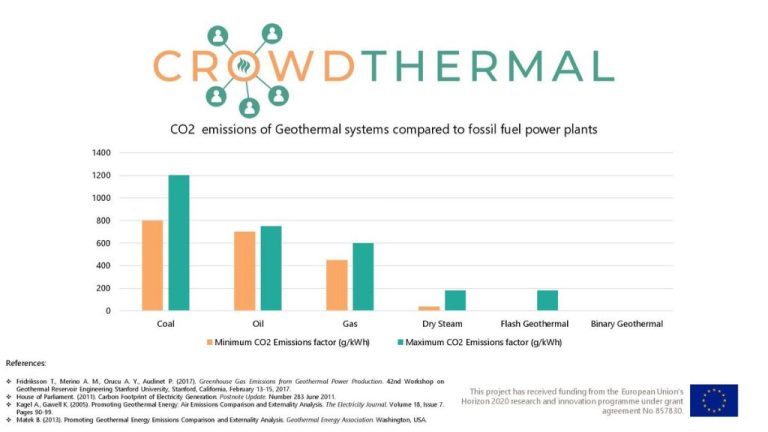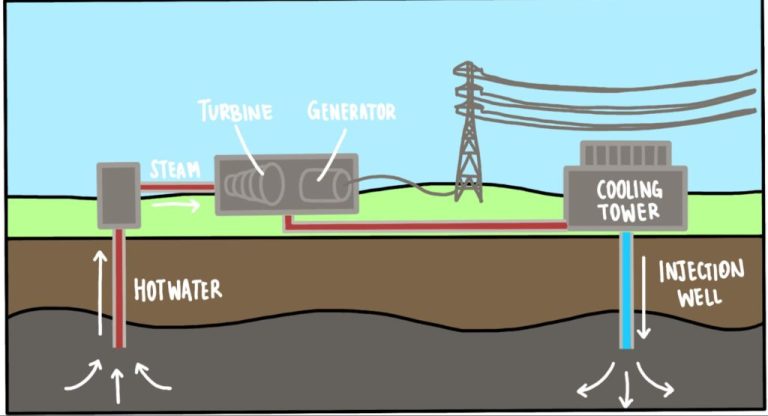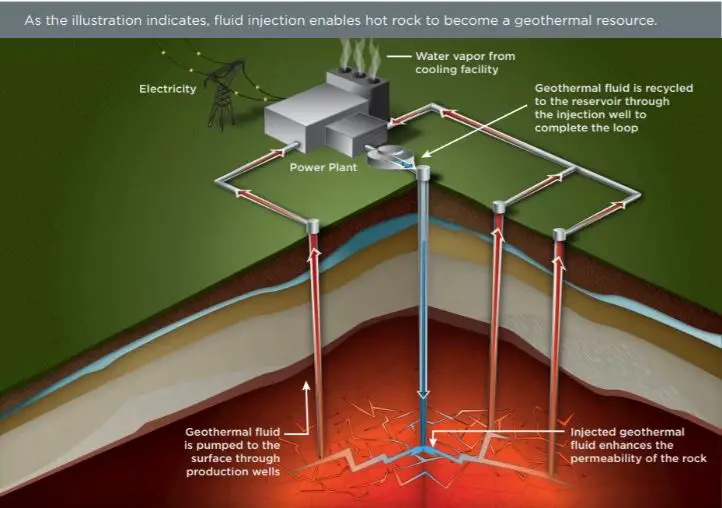What Degree Do You Need To Work With Geothermal Energy?
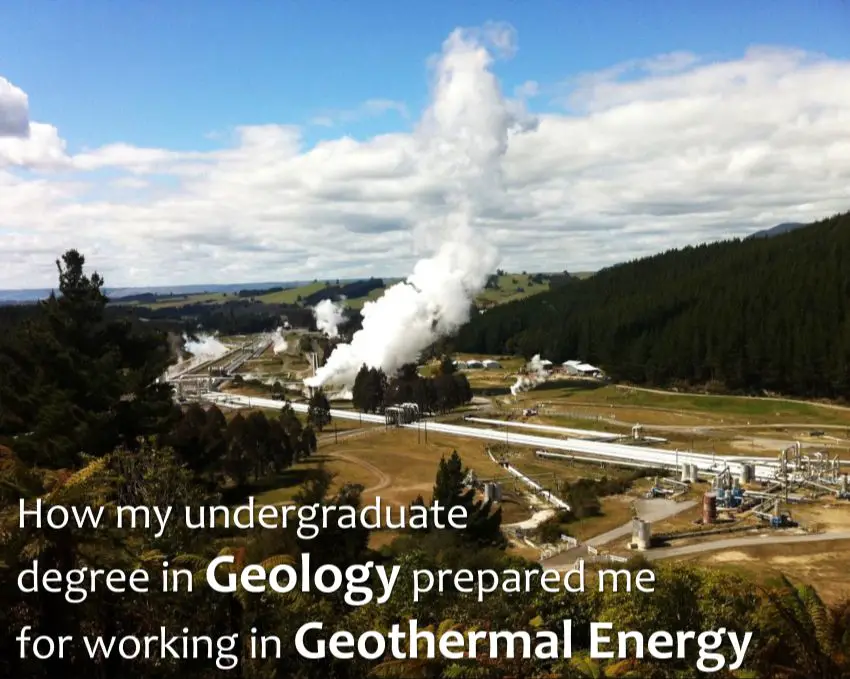
Geothermal energy is a growing renewable energy resource that utilizes the natural heat within the earth to generate clean electricity and provide heating and cooling. The geothermal energy industry has seen rapid growth and development in recent years as technology improves and more applications emerge. With this expansion comes new career opportunities in a wide range of geothermal energy jobs.
According to the Geothermal Energy Association, the US geothermal power fleet grew by over 26% in 2021 alone, highlighting the potential for new jobs in this booming renewable energy sector. As geothermal gains broader adoption for power generation, heating, and more, there is an increasing need for skilled workers to lead research, construction, operation, and maintenance of geothermal systems.
What is Geothermal Energy?
Geothermal energy is heat derived from the Earth’s interior that can be used to generate electricity and provide direct heating and cooling (1). It is considered a renewable energy source because the heat is continuously produced inside the Earth (2).
Geothermal energy originates from the original formation of the planet, from radioactive decay of minerals, and from solar energy absorbed at the surface. The geothermal gradient, which is the difference in temperature between the core of the planet and its surface, drives a continuous conduction of thermal energy in the form of heat from the core to the surface (1).
Humans have utilized geothermal energy for bathing, heating, and cooking for thousands of years by tapping into naturally occurring hydrothermal resources like hot springs. Today, modern technologies allow us to access even greater amounts of geothermal resources hidden deep beneath the earth’s surface by drilling wells and pumping the heated underground water or steam to the surface to generate electricity or provide heating (2).
Sources:
(1) https://www.energy.gov/eere/geothermal/geothermal-basics
(2) https://www.eia.gov/energyexplained/geothermal/
Geothermal Energy Jobs
There are a variety of jobs in the geothermal energy industry. Some of the main jobs include:
- Geothermal engineers – Design, develop, and manage geothermal energy projects. They assess geothermal resources and oversee drilling operations.1
- Geologists – Identify potential geothermal reservoir sites and determine if they can produce geothermal energy economically. They analyze rock, mineral, and land formations.1
- Drilling technicians – Operate drilling equipment to access underground geothermal reservoirs. They ensure drilling operations run smoothly and safely.1
- Plant operators – Control and monitor geothermal power generation facilities. They operate, inspect, and maintain equipment.1
- Technicians – Install, maintain, and repair geothermal energy systems. They may work on piping, turbines, pumps, controls, and transmission equipment.1
Skills Needed
To be successful in the geothermal energy industry, certain skills are absolutely essential. According to the U.S. Bureau of Labor Statistics, engineers working with geothermal systems need strong analytical and technical skills to evaluate geothermal resources and design efficient systems [1]. Key skills include:
- Knowledge of geology and geosciences to assess geothermal reservoirs
- Engineering expertise to design, build, and maintain geothermal power plants
- Understanding of thermodynamics, heat transfer, and fluid mechanics
- Ability to analyze data and make projections using modeling software
- Project management and leadership skills to oversee installations
- Interpersonal skills to collaborate across teams and with stakeholders
In addition to strong technical capabilities, workers need to be detail-oriented, innovative problem solvers able to find solutions tailored to each unique geothermal resource. Adaptability and a willingness to work in remote locations near geothermal sites are also essential attributes.
Undergraduate Degrees
Several undergraduate degree programs can provide a good foundation for a career in geothermal energy. Some key undergraduate degrees to consider include:
Geology – Geology degrees provide knowledge about the earth’s subsurface and geologic processes which is critical for geothermal exploration and development. Relevant courses cover topics like structural geology, hydrogeology, geochemistry, and geophysics (US Geothermal Education and Technical Training Programs).
Engineering – Majors like geological, petroleum, mechanical, chemical, and environmental engineering equip students with technical skills for designing, building, and maintaining geothermal systems. Coursework focuses on thermodynamics, heat transfer, fluid mechanics, drilling engineering, and more.
Environmental Science/Studies – These interdisciplinary programs cover geology along with environmental policy and regulations relevant to geothermal projects. Students gain a broad understanding of geothermal’s environmental impacts.
Physics – A physics degree provides a strong base of knowledge regarding thermodynamics, heat transfer, and fluid mechanics which are directly applicable to geothermal systems.
Mathematics – Mathematical modeling and analysis skills are useful for geothermal reservoir simulation, resource assessment, and project feasibility studies.
Undergraduate research opportunities, internships, and field courses provide valuable hands-on experience and are recommended to complement classroom learning.
Graduate Degrees
Graduate degrees provide advanced education and training in geothermal energy. Some relevant graduate programs include:
Master’s and PhD programs in Geophysics focus on understanding the earth’s internal structure and processes using seismic, electromagnetic, gravity and thermal methods. These methods are critical for geothermal exploration and resource assessment. Top schools include Stanford University, the University of Utah, and Oregon State University.
Master’s and PhD programs in Geochemistry analyze the chemical properties and processes in geothermal systems. Geochemistry helps locate geothermal resources and manages their sustainability. Leading schools are the University of California, Berkeley and the University of Auckland in New Zealand.
Master’s degrees in Geoscience cover earth science disciplines with coursework tailored to geothermal energy. For example, SMU’s Geothermal Lab trains students in geology, geophysics, geochemistry and reservoir engineering. Other options are at Curtin University in Australia and the University of Iceland.
Some dual degree programs combine geoscience with environmental science, energy policy or business. This multidisciplinary education equips graduates to work in the industry and address complex challenges.
Certifications
Getting certified in geothermal energy can help boost your qualifications and career prospects. According to the Bureau of Labor Statistics, many companies require engineers to be certified as competent to work on specific geothermal systems. The Association of Energy Engineers offers several certifications related to geothermal energy, including Certified GeoExchange Designer, Certified GeoExchange Installer, and Certified GeoExchange Trainer, among others.
The International Ground Source Heat Pump Association also offers the Accredited Installer certificate for those installing ground source heat pump systems. Earning relevant certifications demonstrates your specialized expertise in geothermal systems and can make you more competitive for jobs in this growing field.
Key Universities
Some of the top schools for geothermal energy studies in the United States include:
- University of Nevada, Reno – Offers both undergraduate and graduate degrees related to geothermal energy. Known for its Great Basin Center for Geothermal Energy and the UNR Graduate Program in Hydrologic Sciences.
- Southern Methodist University – Features a geothermal laboratory and offers a Master of Science in Geothermal Energy Technology. Partners with the Iceland School of Energy.
- Cornell University – Its Earth and Atmospheric Sciences department provides courses, research, and field work opportunities in geothermal studies.
- Stanford University – Home to the Stanford Geothermal Program which performs research and education in geothermal reservoir engineering.
Other notable universities with geothermal programs include Oregon Institute of Technology, Massachusetts Institute of Technology, and the University of Utah. These schools provide a range of undergraduate and graduate degree programs focused on geothermal energy and related earth sciences.
Salary and Job Outlook
According to the Bureau of Labor Statistics, geothermal engineers and technicians earned an average annual salary of $88,593 in 2022. However, salaries can vary greatly depending on factors like location, experience, and specific job duties. The Indeed career guide reports geothermal engineers earning up to $130,000 per year.
A survey by Vault found geothermal energy workers reported average earnings of $105,661, with some earning $200,000 to $300,000 or more per year. The highest salaries tend to go to experienced geothermal engineers and project managers.
The geothermal job market is expected to grow substantially in the coming decade. According to projections from the International Renewable Energy Agency (IRENA), geothermal capacity could grow globally by 21 gigawatts per year by 2030, and 200 gigawatts per year by 2050 [1]. This rapid growth will drive strong demand for geothermal engineers, technicians, drillers, project managers, and other roles.
Key factors driving job growth include climate change priorities, energy diversification, technological improvements, and cost reductions in geothermal systems. Organizations hiring for geothermal positions include power utility companies, drilling companies, engineering firms, research institutions, and geothermal technology startups.
Getting Started
When getting started in the geothermal energy field after graduation, here are some tips:
Gain relevant experience through internships in the renewable energy industry while in school, such as at a geothermal plant or with a drilling company. This provides hands-on training and networking opportunities (Source: https://www.energy.gov/eere/geothermal/articles/five-tips-building-career-geothermal-energy).
Obtain any required licenses or certifications. Some geothermal positions require a license, like electricians, plumbers, and HVAC technicians working with geothermal systems.
Consider relocating to areas with major geothermal resources and operations, such as western states like California, Nevada, Utah, Hawaii, and Alaska. Job opportunities tend to be concentrated in these regions.
Join relevant professional organizations like the Geothermal Resources Council to build your network and keep up with the latest developments in the industry.
Be willing to start in an entry-level position and work your way up through gaining experience. Possible roles to begin with include field technicians, plant operators, drillers, or support services.
Research companies working on geothermal energy projects and follow their career sites for job openings. Having a targeted list can help focus your job search.
Highlight renewable energy and geoscience coursework, research projects, or previous internships related to geothermal energy on your resume. Tailor your resume and cover letter to each application.

